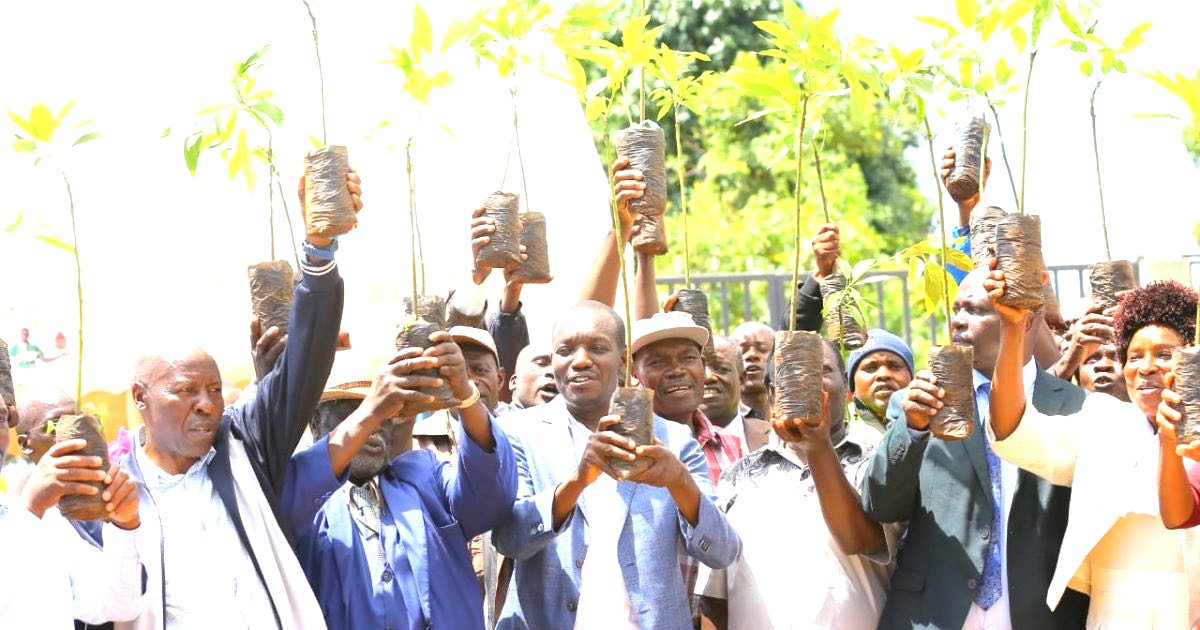By Jackson Okoth
State Department for Co-operatives is seeking for consultants to undertake a nationwide survey of the co-operative sector.
It is believed that Kenya’s gigantic cooperative sector has over the years contributed immensely in mobilizing savings, creating employment opportunities and boosting in investments in virtually all segments of the economy. However, there is no credible data to support this claim.
“This survey is intended to develop a co-operative disaggregated data base at the State Department for Co-operatives to enhance availability of credible information on Co-operatives,” said Ali Noor Ismail, Principal Secretary, State Department for Co-operatives.
The scope of this survey will involve collecting data nationally on all registered co-operatives in Kenya. The parameters will include number of co-operatives registered (active, dormant and cancelled), distribution of co-operatives by county, nature of business (Deposit Taking Saccos and Non-Deposit Taking Saccos), marketing, housing, consumer, investments, multi-purpose, and transport among others)
Data will also be captured on distribution of co-operatives by type of activities/commodities (hand crafts, sand harvesting, coffee, dairy, housing, savings and credit, transport, fishing, horticulture, bee keeping, cereals, legumes, industrial ,tea, cotton, pyrethrum, timber and so on).
The main objective of this survey, according to State Department for Co-operatives, is to establish the economic contribution of co-operatives to the Kenyan economy.
The specific objectives will be to establish contribution of co-operatives to various economic sectors including raw materials, manufacturing, financial and service sector, housing, health and food security.
Data collected will also indicate what contributions co-operatives make to national savings, national tax revenue and waged employment.
It will also be possible to have data on classification of co-operatives per common bond (National government, county governments, state corporations, community based, faith based, diaspora, youth etc.) to determine the effect of opening the common bond on growth of co-operatives.
The survey will also establish total assets, members’ savings/deposit (Fosa/Bosa or others), loans and advances to members (education, agriculture, health, business, land and housing) and share capital.
Data will also be available on profitability of each co-operative society, returns to members, level of external funding, export earnings from marketing co-operatives, volume of production of different commodities (unit in kilogrammes, pieces, litres, bales etc.) and in value, total turnover, investments in different sectors (land, housing, agriculture, financial sector, transport, manufacturing, SMEs, education, health, and mining) as well as levies and licenses paid to various government agencies.
It will also be possible to establish co-operative membership by gender, age and persons living with disabilities, co-operative employees by gender, age and education level as well as housing/building units owned by co-operatives (own use, commercial purpose or for disposal to the members).
The State Department intends to develop a standard reporting template for periodic data collection and reporting.
The survey will also map out all land owned by co-operatives in acreage and value and welfare of members (benevolent fund, health insurance and revolving funds) in terms of membership and funds.
The exercise will also establish types of litigations affecting co-operatives and associated costs (legal fees, fines and penalties) and number of pending litigations. It will also establish the age, gender and education level of each member in the leadership, management team and supervisory committee of all co-operative societies.
Other areas to be covered in this survey is to look at the compliance levels of each co-operative society in terms of procurement, financial management, code of conduct, wealth declaration and indemnity.
It is envisaged that data from this national survey will be available and accessible through the Co-operative Management Information System (CMIS).
Further, the survey will entail collection, collation and analysis of data from the co-operative sector.
“Since 2013, challenges have emerged in the compilation and subsequent reporting on co-operative performance and status as annual reports from counties is no longer submitted to the state department,” said PS Ismail.
The National Co-operative Policy identifies lack of Co-operative data and statistics for aggregation into the national economic statistics (GDP, Savings, Investments, Employment) to inform policy.
The State Department for Co-operatives says the lead consultant(s) selected to do this national survey must present detailed survey methodology and work plans to the department.


